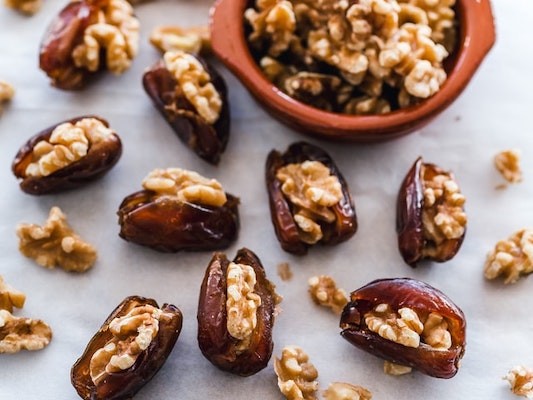
Five Healthy Tips to Implement into Your Lifestyle This Ramadan
With the month of Ramadan starting worldwide, Morocco World News offers five tips for a healthier Ramadan.
Each year, Muslims around the world celebrate Ramadan with fasting, prayer, charity, and family but staying healthy often poses a unique challenge.
Muslims fast from sunrise to sunset and consider the fast one of the biggest challenges they face throughout the month. This piece will offer five tips for a healthy month of Ramadan.
- Stay hydrated
In order to remain hydrated throughout the day, try drinking a few glasses of water throughout the night. Additionally, consuming foods that preserve water can keep you hydrated for longer periods of time. Fruits like watermelon, strawberries, and cantaloupe are made up of over 90% water, which will help retain water throughout the day.
Experts recommend electrolyte beverages to restore electrolytes and vitamin levels.
- Nutritional variety
Although the month of Ramadan is a time for consuming sweets and enjoying copious amounts of food with loved ones, nutritional diversity is important to staying healthy. An average sized adult should consume 2,000 calories a day with an even split of macronutrients (carbohydrates, protein, and fat).
During Ramadan, it is easy to consume an excess of fats and carbs as many traditional dishes are made up of dough and nuts.
Tracking calories and monitoring the percentages of consumed macronutrients is an important part of staying healthy. Also, health specialists recommend eating a light meal for sehour (meal before the fast resumes at sunrise).
- Portion size
After a day of fasting, the natural response is to devour one’s ftour (meal after sunset). However, practicing mindfulness and slowing down while eating may help prevent overeating. In addition to slowing down, one should try to eat smaller portions. Allowing a smaller amount of food to digest before eating more will keep you feeling healthy and full throughout Ramadan.
A traditional Moroccan ftour contains chebakia cookies, dates, dried figs, meats, and harira soup. Rather than consuming a handful of sweet, honey-covered chebakia followed by a mound of chicken and vegetables, one should limit the sizes of each.
One date and one chebakia before the main course will certainly satisfy a post-fast appetite.
Also, smaller portions at ftour will allow for more food throughout the night.
- Stay active
It may sound counter intuitive to remain active while fasting but research shows physical activity will stimulate brain activity and hormone optimization. Health professionals recommend a light jog for 10 minutes before ftour and the benefits include improved body composition, increased brain function, higher testosterone levels, and less depression.
Weight training is still permissible although athletes should train cautiously as the body’s glycogen stores deplete rapidly while in a fasted state. Lifting weights requires a large amount of energy and the energy needs to be replenished as soon as possible to promote muscle growth.
- Don’t miss ‘sehour’
Muslims around the world often struggle to wake up for sehour. As sehour is the last opportunity to eat before the fajr (sunrise) prayer, many think consuming large quantities of food will be beneficial to the body’s energy supply. However, lighter foods such as oats, yogurt, and water-rich fruits may be better for controlling energy levels and staying healthy throughout Ramadan.
One traditional option is belboula, a porridge-like warm soup that is rich in vitamins and nutrients.
Although it is easy to skip this meal, Muslims should make eating sehour a priority as it will make the daily fast easier on the body.
Source: Morocco World News.
